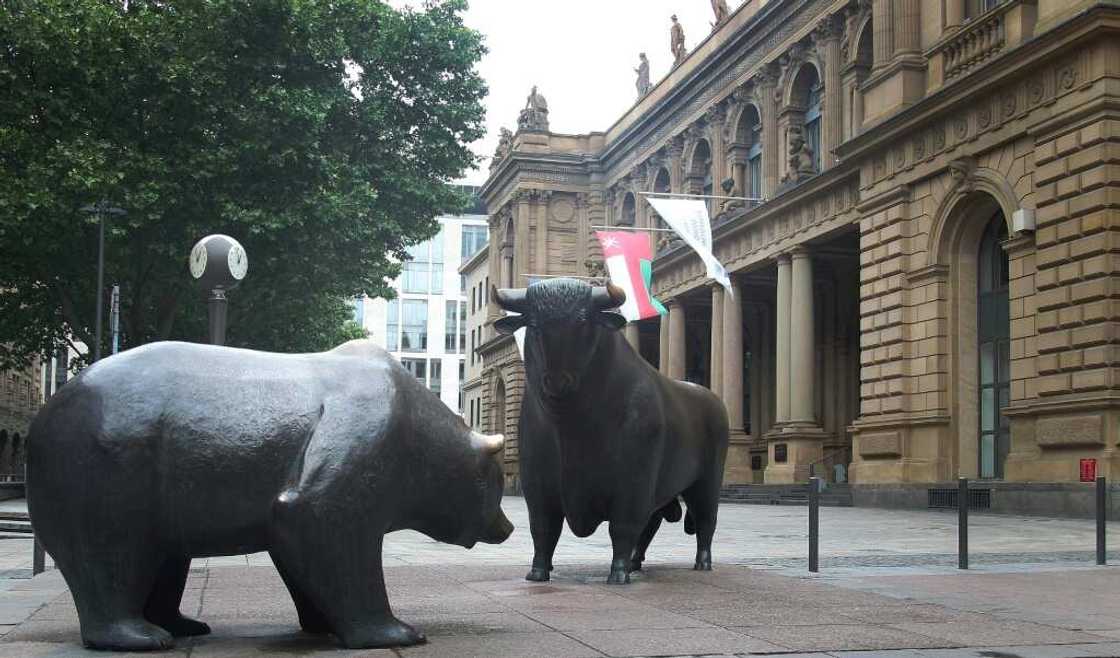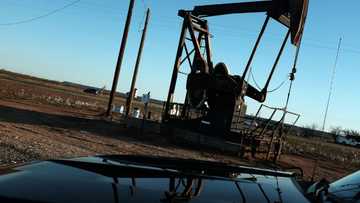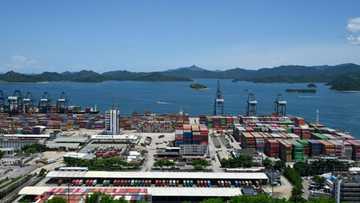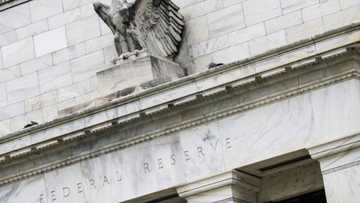Asian markets fluctuate as traders weigh economic outlook

Source: AFP
PAY ATTENTION: Click “See First” under the “Following” tab to see Legit.ng News on your Facebook News Feed!
Markets drifted in Asia on Wednesday, with investors trying to navigate an uncertain economic landscape as central banks hike interest rates to fight runaway inflation, in turn fuelling fears of a possible recession.
But while officials at the Federal Reserve and its peers are expected to keep tightening monetary policy for the rest of the year, talk is building that they will be able to ease up in 2023 -- and maybe even cut rates -- if the pace of price rises comes down.
Minutes from the Fed's July meeting will be pored over when they are released later in the day, with investors hoping for some insight into policymakers' thinking and an idea of its plan for next month's gathering.
"We expect the ... minutes to have a hawkish tilt," Carol Kong, at Commonwealth Bank of Australia, said. "We would not be surprised if the minutes show (officials) considered a 100 basis points increase in July."
The bank lifted rates by 75 points in both June and July.
Forecast-beating earnings from retail titans Walmart and Home Depot provided optimism that US consumers remain resilient even as inflation remains elevated and borrowing costs are going up.
PAY ATTENTION: Share your outstanding story with our editors! Please reach us through info@corp.legit.ng!
However, Asia struggled to match the positive lead from Wall Street, with concerns about China's economy dampening appetite.
The country's central bank announced a surprise interest rate cut Monday and a report Tuesday said Premier Li Keqiang called on six key provinces -- accounting for about 40 percent of the economy -- to bolster pro-growth policies.
However, analysts said markets are more concerned about the debilitating impact of lockdowns and other strict containment measures implemented as part of the government's zero-Covid strategy.
"Visibility over the evolution of China's zero-Covid policy is low and recent messaging has suggested virus containment remains a top policy priority of the country," said Adam Montanaro, investment director of global emerging markets equities at abrdn.
"Not only do investors hate uncertainty, but the negative economic impact of this policy is increasingly visible."
Hong Kong was flat and Shanghai slipped, while there were also losses in Seoul and Wellington.
Tokyo, Singapore, Taipei and Manila rose.
Equities have enjoyed several weeks of gains since hitting their June lows, and while the initial bounce was broadly seen as a bear market rally there is a hope that they may have already reached their nadir.
"It looks like a bottom, acts like a bottom, and trades like a bottom, then it probably is a bottom," said OANDA's Edward Moya in a note.
"Bear market rally calls are suddenly becoming quiet these days. The risks of the Fed sending the economy into a recession are easing as inflation is slowly coming down.
"The Fed's soft landing seems achievable and that has allowed this rally to continue."
Key figures at around 0230 GMT
Tokyo - Nikkei 225: UP 0.8 percent at 29,101.33 (break)
Hong Kong - Hang Seng Index: FLAT at 19,837.16
Shanghai - Composite: DOWN 0.4 percent at 3,263.71
West Texas Intermediate: UP 0.3 percent at $86.78 per barrel
Brent North Sea crude: UP 0.2 percent at $92.51 per barrel
Euro/dollar: UP at $1.0174 from $1.0166 Tuesday
Pound/dollar: UP at $1.2108 from $1.2092
Euro/pound: DOWN at 84.01 pence from 84.04 pence
Dollar/yen: DOWN at 134.06 yen from 134.21 yen
New York - Dow: UP 0.7 percent at 34,152.01 (close)
London - FTSE 100: UP 0.4 percent at 7,536.06 (close)
-- Bloomberg News contributed to this story --
Source: AFP





